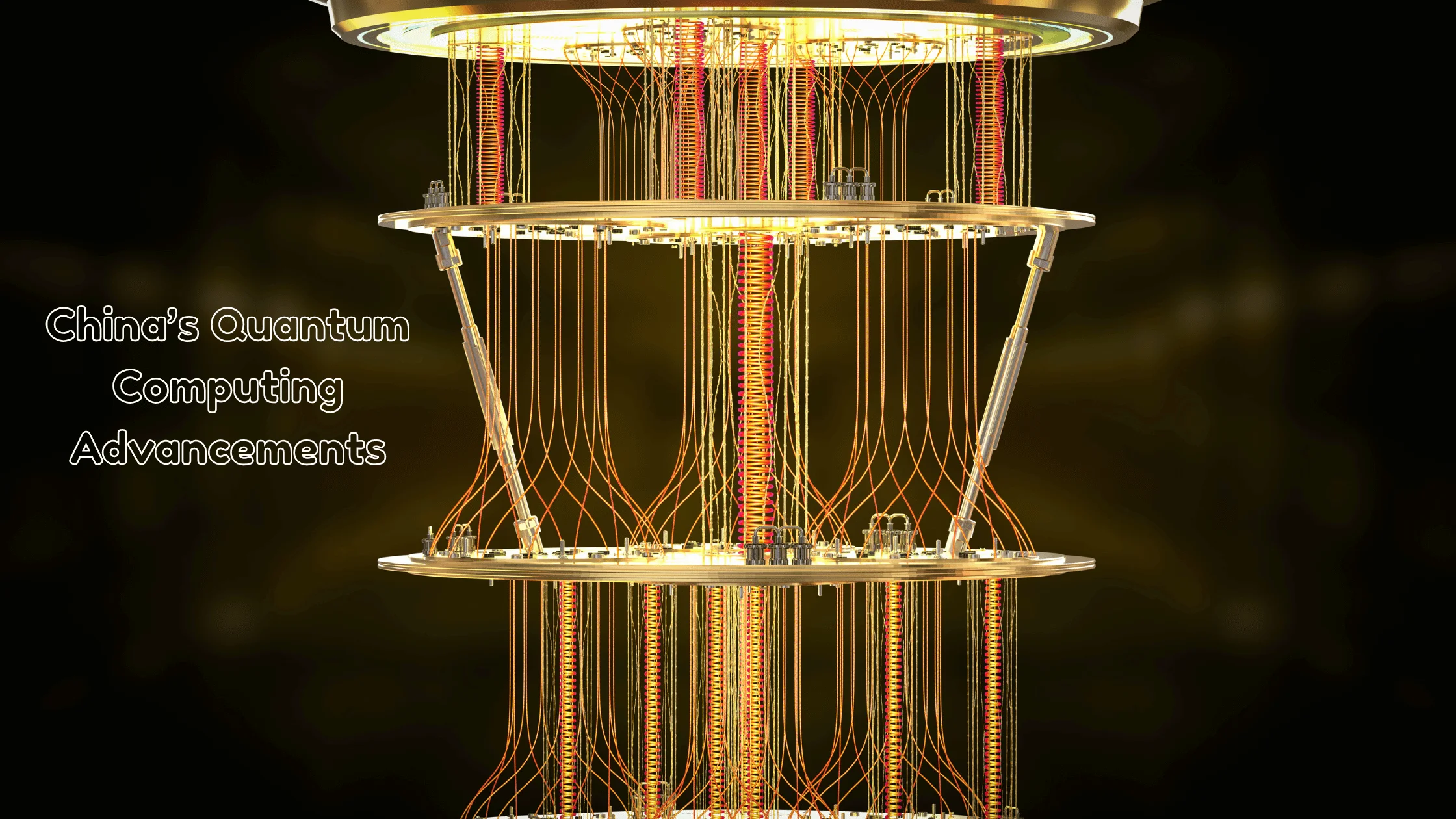China’s Quantum Computing Advancements
Published: 1 Jun 2025
A global leader in quantum computing, China has developed processors and systems at an impressive pace, and it has an ambition to use those capabilities to revolutionize both computational power and secure communications.

From a partly state-driven science and technology base, China has achieved many world-firsts in this area and is now pushing to move from prototypes to practical systems.
China’s Quantum Computing Breakthroughs
Zuchongzhi-3: A Superfast Quantum Processor
The University of Science and Technology of China (USTC) has created Zuchongzhi-3, a superconducting quantum processor with 105 qubits that runs at a speed one million times faster than the latest results from Google’s quantum computing research. This processor is a very big leap into the next generation of quantum supremacy.
Quantum Cryptography: The ‘Unhackable’ System
The world’s first commercial quantum cryptography system, immune to hacking (even by quantum computers), has been launched by China Telecom Quantum Group.
Integrating:
- Quantum Key Distribution (QKD)
- Post-Quantum Cryptography (PQC)
The system allows China Telecom to provide an end-to-end quantum-secure communication framework.
Key Features of China’s Quantum Cryptography System:
QKD works through the principles of quantum mechanics to send secure encryption keys.
Post-Quantum Cryptography (PQC): Uses sophisticated mathematical equations to keep data safe from being cracked by quantum computers.
China has successfully carried out a telephone call encrypted with quantum technology over a distance of more than 1,000 kilometers. The call took place between Beijing and Hefei.
Quantum Urban Networks: In 16 major cities, including Shanghai, Beijing, and Guangzhou, establishing a nationwide backbone for secure communication via quantum mechanics.
China’s Largest Quantum Network
The Hefei Quantum Network is now operational in China. Sen said that this security feature is crucial, given that so many organizations rely on the framework. Once released, a quantum computer will have the power to break most conventional encryptions, which is why China’s quantum network does not resemble any contemporary fiber network. Instead, it approximates a model for the future of secured fiber networks: it is built from the ground up to resist quantum hacking.
The Future of Quantum Computing in China
China keeps putting its money where its quantum research is, with a view to not just maintaining but also expanding its capabilities in quantum computing and its infrastructure for using quantum technologies in the field of cybersecurity. If anything, the development of Tianyan-504, a 504-qubit superconducting chip, seems to have only solidified China’s position as a powerhouse in the world of quantum computing.
Conclusion
China’s quantum computing and cryptography advancements are molding tomorrow’s tech world. Fast, fast, fast. Even “ultra-fast” doesn’t do justice to the speed of China’s new processors, which can run 200 times faster than the best current German and American machines. But speed without accuracy amounts to gibberish; so, how does China fare when it comes to actually getting the right answers at the right time? Quantum processors can crunch numbers at insane rates, but what about the encryption side?
China is one of the world leaders in quantum computing, along with the U.S. and Europe. Even as the U.S. has made serious strides with such companies as Google and IBM, China has directed its efforts toward quantum communication networks and cryptography. In fact, China has become the first country to use large-scale, quantum-secure communication systems.
Fields such as finance, healthcare, and artificial intelligence will undergo immense changes due to quantum computing. China is pushing hard in this area, concentrating mind-boggling amounts of resources on the goal of using quantum mechanics to build a whole new level of cryptography. That could have big payoffs in national security, since we’re talking about using the principles of quantum mechanics to do something much better than what today’s conventional computers can do.
At the same time, other research teams in China are using the power of quantum computing to totally upend the way we do simulations of complex problems, all kinds of problems, from the making of the next generation of materials (think semiconductors) to the next generation of drugs. And the next generation of both those kinds of stuff could result in breakthroughs that have enormous national and international security implications.
Even though it is making swift strides, China is still faced with a lot of issues, such as:
- Error correction.
- Achieving the required scale.
- Ensuring the stability of hardware.
One example serves to illustrate these problems. Quantum computers, for instance, work at the temperature of liquid helium (almost -269 degrees Celsius). And the problem is, no matter what you do, zeroing in on a temperature that low can only be done at a certain stage and for a certain period. After that, the temperature (and thus the qubits!) has to be kept relatively stable, or the qubits themselves will lose coherence.
China’s systems of quantum cryptography, which include Quantum Key Distribution (QKD), make traditional encryption methods back in the 20th century utterly outdated.
This is no small thing. It means that the entire suite of current global protocols for cybersecurity, firewalls to enforce police state security in China, encrypted chat apps used by protesters in Hong Kong, and the entire global internet itself might soon be rendered as secure as Windows 98. And what this means for your average citizen is still more secure state surveillance. The Golden Shield 2.0 is coming.

- Be Respectful
- Stay Relevant
- Stay Positive
- True Feedback
- Encourage Discussion
- Avoid Spamming
- No Fake News
- Don't Copy-Paste
- No Personal Attacks

- Be Respectful
- Stay Relevant
- Stay Positive
- True Feedback
- Encourage Discussion
- Avoid Spamming
- No Fake News
- Don't Copy-Paste
- No Personal Attacks





